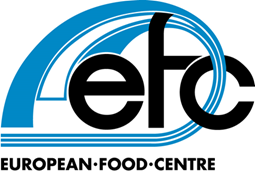Chair Marine Bio-Economy: From research to sustainable business
The marine or blue economy comprises all economic activities that have a link to the sea. Despite its enormous potential - the ocean occupies more than 70% of the Earth's surface - and substantial investment in research, this does not currently translate fully into jobs, products and added value. The blue economy is thus a sector that is still developing ('emerging'). Many new blue technologies are still in a scaling-up phase and are not yet applied on a commercial scale. The emerging nature of the sector also leads to the fact that the competences that the work field and governments expect from a blue professional are still evolving. It is already clear that the field cannot attract enough people with an appropriate skill set to work in such a rapidly evolving and knowledge-intensive environment. At the same time, social and economic pressure is rising to organise our energy and food supply in a different, more sustainable way faster than expected. To many of these needs, blue alternatives offer a good answer.
Aim
The chair 'Marine Bio-Economy: From Research to Sustainable Business' aims to better understand the factors influencing upscaling in the blue economy and to strengthen synergies between various subsectors of the blue economy, such as fisheries and aquaculture. This chair will also be strengthened with a part-time ZAP mandate with teaching content. In this way, an interaction will be ensured with the educational offering of UGent, in the first instance with the Faculty of Bioengineering. More specifically, the following aspects will be strengthened in the educational offering of the Department of Animal Sciences and Aquatic Ecology: business management, entrepreneurship and innovation management in the field of the blue economy.
The chair complements and reinforces the current activities of Ghent University, through the BLUEGent and Marine@UGent consortia, the Department of Animal Sciences and Aquatic Ecology and the Faculty of Bioscience Engineering. Moreover, the chair is in line with the vision that UGent wants to build on Ostend Science Park.
Partner
The European Food Centre is a logistics platform made up of two clusters of fishing companies, with the Ostend and Zeebrugge fish auctions as its driving force. Together, these two clusters contain about 130 companies and employ about 800 people in the fisheries sector. Both the Zeebrugge and Ostend fishing ports continue to develop and organically grow the local cluster. On the one hand, the companies present are active in fish trade and processing, which supports the demand for fish. On the other hand, the presence of service companies is indispensable for the continuity of the entire sector.
Period
2023-2026
Promotor
Prof dr. Colin Janssen is full professor of Ecotoxicology and Marine Ecology at the Laboratory of Environmental Toxicology and Aquatic Ecology (GhEnToxLab) of Ghent University. He teaches courses in aquatic ecology, environmental health & toxicology and risk assessment to Bachelor and Master students. Prof. dr. Colin Janssen is currently co-supervisor of a research team of about 15 staff and (on average) five to 10 Master students per year, actively researching the ecological risks of chemicals and other stressors in freshwater and marine systems, stress and evolutionary ecology, and developing models/procedures for ecological risk assessment for chemicals and environmental stressors such as climate change.
In addition to his academic career in environmental health, Prof dr. Colin Janssen provides independent scientific services to numerous organisations, such as the Belgian Health Council, as well as various national environmental agencies and international organisations such as the OECD, EU and WHO. He is currently chairman of the scientific committee of the Flemish Institute for the Sea (VLIZ) and acting vice-chairman of the Board of Directors. Prof dr. Colin Janssen provides independent scientific advice to both national and international policy/regulatory institutions and to international industrial organisations on fundamental scientific and regulatory issues related to setting environmental quality criteria, risk assessment of new and existing substances and other environmental health issues.
Chair holder
Prof dr. ir. Margriet Drouillon, EMBA is Senior Business Developer at BLUEGent, one of the consortia of the Industrial Research Fund of Ghent University. As Chief Business Officer for the University's Research and Development activities in the field of aquaculture and blue life sciences, she oversees the commercialisation of new research results into market-ready technologies and products, working closely with fellow professors and senior researchers. Prof dr. ir. Margriet Drouillon, EMBA has more than 15 years of experience in technology transfer: she led the pre-seed phase of four UGent spin-offs and, as a key representative of the university, has closed a large number of deals with UGent partner companies.
Prof dr. ir. Margriet Drouillon, EMBA has supervised numerous research projects, mainly in collaboration with industry partners and/or with a view to a commercial application (spin-off, licence, technology transfer in general). She also represents Ghent University in the Blue Economy Cooperative Research Centre in Australia, a prestigious partnership (AU$329 million, 10 years) that unites 44 companies, research institutions and government partners around the world to promote the scale-up and application of new, blue technologies. From 1 September 2023, Prof dr. ir. Margriet Drouillon, EMBA, will act as holder of the chair, specifically as professor of blue innovation and acceleration.
